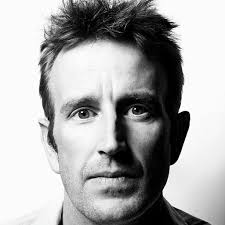Robert Macfarlane (https://www.english.cam.ac.uk/people/Robert.Macfarlane/ ) and (https://en.wikipedia.org/wiki/Robert_Macfarlane_(writer)) has won more literary prizes than he can shake a stick at. His central theme is the relationship, and mutual shaping forces, between humans and the natural world. Notable works are Mountains of the Mind (2003), The Wild Places (2007), The Old Ways (2012), Landmarks (2015) and The Lost Words (2017).
Underland is another remarkable book by this extraordinary author. It took Macfarlane, a Fellow of Emmanuel College, Cambridge, six-and-a-half years to write, and delves into what lies beneath us: the places where we “shelter what is precious… yield what is valuable… dispose of what is harmful”. After all, “into the underland we have long placed that which we fear and wish to lose, and that which we love and wish to save.”
Macfarlane guides us through British caves made famous by ancient skeletons and modern accidents, a potash and rock salt mine under the North Sea, and a laboratory half a mile deep. He takes us on a walk through the woods with mycologist Merlin Sheldrake. We learn what lies in the understorey, where unlikely alliances between species take place beneath the forest floor. The nature lesson concludes with a swig of Merlin’s home-made coca extract, mead, cider, drums, songs and stories by firelight.
More outlandish characters turn up in the Paris catacombs, leading through the limestone tunnels that helped build the French Capital and then house its dead. They take him for a sojourn in the darkness illuminated by carbide lamps and enlivened by a rave with an appropriate soundtrack (The Jam’s “Going Underground”, two songs simply titled “Underground” – by David Bowie and Ben Folds Five) while he tells us about Walter Benjamin, who compiled The Arcades Project, “one of the most extraordinary city-texts ever written”. Time, place and people collide and kaleidoscope in a dizzying way.
The exploration continues into limestone caverns ‘measureless to man’ stained with the memory of war crimes; sunless rivers; undersea depths; painted caves; and moulins – melt holes – in glaciers. A careful reading of Macfarlane is a fearful one, I suggest. It shows the horrors that humans have committed against each other and the planet. He says we are surrounded by that which is “beyond our comprehension to know but within our capacity to destroy”. From the beauty and mystery of ancient cave paintings to an underground nuclear waste dump, this is a journey that tells the story not just of nature but of human nature. It is timely in the month a United Nations report (https://www.un.org/en/climatechange/reports.shtml) states that humanity is on the brink of irrevocably trashing its own home planet.
If we don’t curb our greed or drastically scale down our lifestyle expectations, humanity is doomed. We’ll all go under.
Check if this highly anticipated new work from Robert Macfarlane is in stock at your local library by consulting the online catalogue here at https://www.sllclibrary.co.uk/cgi-bin/spydus.exe/MSGTRN/OPAC/BSEARCH
496 pages in Hamish Hamilton
First published 2019
ISBN 978-0241143803



